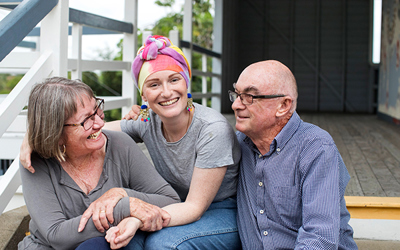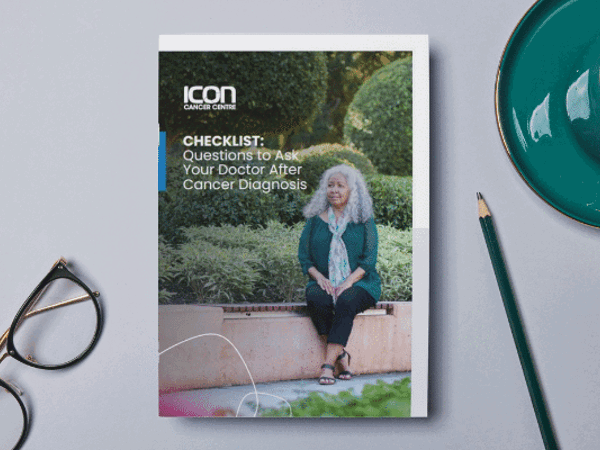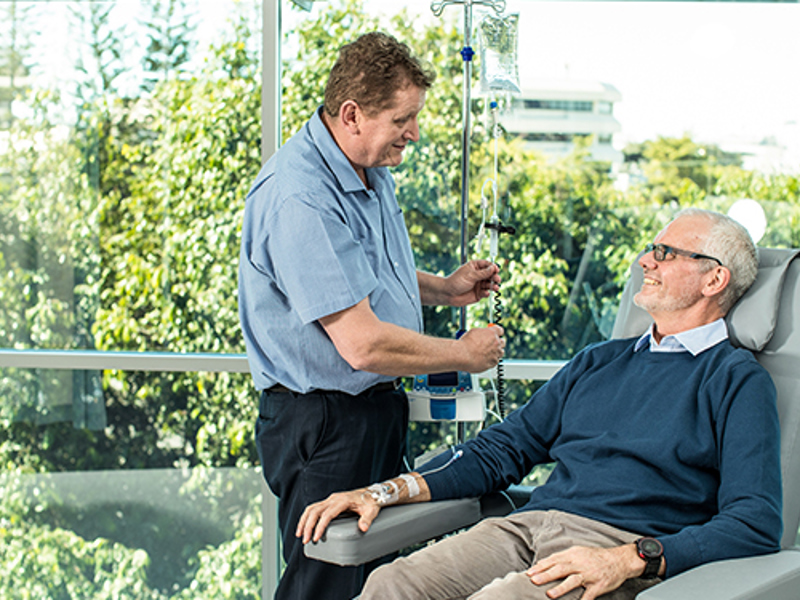
Supporting women through early menopause after cancer treatment
Chemotherapy works by killing cells that are rapidly dividing, such as cancer cells, with the use of anti-cancer (cytotoxic) drugs. There are many different kinds of chemotherapy medicines and treatment plans available. The kind of medicines given and how often they are needed, will depend on the type of cancer you have, how it responds to treatment, and how your body responds and copes with treatment.
The following information will help you better understand your chemotherapy treatment, how it works, and answers to some common questions you may have.
To understand how chemotherapy works, it is helpful to understand what cancer is and how cancer cells grow.
The human body is made up of billions of cells, which in a healthy body are usually turning over slowly, in an organised way. Cancer is the term we use for a disease that occurs when these cells grow in an abnormal and uncontrolled way. This uncontrolled growth of cells can causes a lump or a mass to form. We call this a tumour.
Tumours can be benign or malignant. Benign tumours usually grow slowly and do not spread to other parts of the body. Benign tumours only become a problem if they grow very large, taking up space and affecting the way the body works.
Malignant tumours are usually faster growing and can destroy tissue and have the ability to spread to other parts of the body.Cancer may also affect blood cells, causing blood cancers such as leukaemia, lymphoma or myeloma. These blood cancers also cause normal blood cell production to be reduced due to the uncontrolled growth of the abnormal (malignant) cells in the bone marrow.
Over time, the uncontrolled growth of cancer cells usually becomes too much for the body to cope with, or will spread to a part of the body that is essential for life. Chemotherapy treatment aims to control cancer, or even cure it.
Be more informed and play an active role in your own cancer care.

Chemotherapy is the use of cytotoxic drugs to destroy these fast growing cancer cells. Cytotoxic means toxic to cells. A cytotoxic drug is a substance that results in cell damage or cell death.
During the chemotherapy process, the chemotherapy drug enters the blood stream and circulates throughout the body, targeting rapidly dividing cells. Cancer cells multiple much more often than most healthy cells, which is why chemotherapy is more likely to target and kill them. Chemotherapy may be given orally, through a needle inserted into the vein (known as an intravenous catheter), directly into the organ or tissues affected by the cancer, or as a cream.
Unfortunately, as well as killing cancer cells, chemotherapy does affect our normal, healthy cells that are fast growing. This includes; hair, finger nails, skin and bone marrow. This damage to healthy cells is usually what causes some of the most common side effects of chemotherapy.
However, unlike cancer cells, normal cells can usually repair the damage and will recover with time. Cancer cells can’t recover from chemotherapy, and over the course of treatment will eventually die
Chemotherapy is usually given in multiple courses (cycles) for a set amount of time, or for as long as the treatment is effective. Having the treatment in cycles allows time for the healthy cells in your body to recover between treatments. This rest period allows the healthy cells in your body to recover from the cytotoxic drug effects.
There are many different kinds of chemotherapy medicines and treatment plans available. The kind of medicines given, and how often they are needed, will depend on the type of cancer you have, how it responds to treatment, and how your body responds and copes with treatment.
Chemotherapy may be used on its own, or in combination with other types of treatment, such as before or after surgery or radiation therapy. There are also other anti-cancer therapies available such as immunotherapy and targeted therapy. These work differently to chemotherapy but may be given in combination with chemotherapy drugs.
Our doctors stay up to date with the latest treatments and advances to recommend the right approach for you and your cancer. At Icon, we will talk your through your treatment plan and why it’s the best possible approach for you.

The content on the Icon Oncology website is for informational purposes only and should not be considered medical advice. It is not a substitute for consultation with a qualified medical practitioner. For personalised medical guidance, please consult with your GP or another qualified healthcare provider.

Discover our comprehensive collection of content designed to inform, support, and guide you through every aspect of cancer care. From the latest news and updates to personal patient experiences and educational resources, these materials provide valuable insights to help you better understand cancer, treatment options, and the journey ahead.